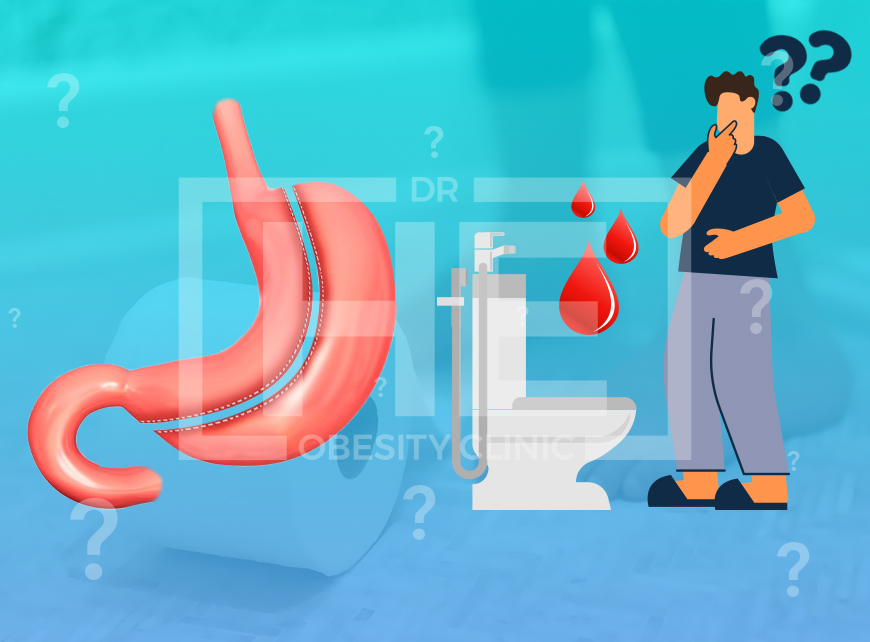
Is it Normal to Have Blood in Stool After Gastric Sleeve Surgery? Is it normal to have blood in stool after gastric sleeve surgery of course, bleeding is not normal. But can it be expected, let’s discuss that. We’ll get into bariatric surgery a little later, but first, let me say that bright red blood in the bowels should always be seen by a physician or capable health-care provider as soon as possible.
Even in the middle of the night, I believe significant blood warrants a trip to the hospital. Sustained minimal quantities of bright red blood need to be assessed within the next few days. Bleeding that comes and goes should be evaluated within a week.
These needs addressing quickly, as large amounts of blood can be managed to lose, leading to weakness and fatigue or even fainting and worse.
The most major reason of bright red blood in the rectum is bleeding haemorrhoids, which is a non-serious condition. This is a simple diagnosis to make. External haemorrhoids are easily visible, whereas internal haemorrhoids require a scoping procedure to identify and diagnose.
Polyps in the colon, diverticula (weakness in the colonic wall), inflammatory bowel diseases like ulcerative colitis and Crohn’s disease, and colon cancer are all possible causes of bright red blood in the stool.
Gastric and duodenal ulcers are a rare but common complication of some types of bariatric surgery. Although these ulcers can bleed, the blood is usually digested, resulting in black stools. The presence of bright red blood in the stool usually indicates that it is from the colon.
After Surgery and Stool
You might indeed notice some changes in your stool after surgery. It’s normal for your bathroom habits to change after surgery, especially in the first few days. The majority of the changes are minor.
If you’ve had surgery, you’ve probably changed your diet drastically. Surgery can also have an impact on your stress level and medication regimen. These modifications may result in a new bathroom design. These changes usually go away as you recover.
This article will go over some of the most prevalent stool changes that can occur following surgery. It will also explain which changes are likely to resolve on their own and which ones may require medical intervention.
The frequency with which you go out to the bathroom can be affected by surgery. In most cases, your body might very well return to its normal patterns within a few days.
However, if you have diarrhea for more than 24 hours or constipation for more than five days, you should consult your doctor. If you’re experiencing cramping, fever, vomiting, or pain, don’t hesitate to contact your healthcare provider.
The colouration of your stool may also change as a result of surgery. After surgery, the most important stool shades to notice are black, red, and white. If you notice these color changes, consult your surgeon to see if there is anything to be concerned about.
Risks
There is a risk of side effects with all bariatric surgeries. A significant proportion of patients will experience mood swings and body aches during the weight loss period (the first six months), as well as fatigue and flu like symptoms, coldness, and dry skin and hair loss.
Vitamin deficiencies and malnutrition are the most common long term side effects. We see iron, vitamin B12, vitamin D, and folate deficiencies in particular. Hypoglycaemia, dehydration, gallstones, kidney stones, and bleeding stomach ulcers are some of the less common complications.
A small percentage of people who undergo certain operations, such as the gastric bypass, are at risk of developing dumping syndrome. Food passes through the intestines too quickly, causing nausea, vomiting, diarrhoea, dizziness, and sweating.





